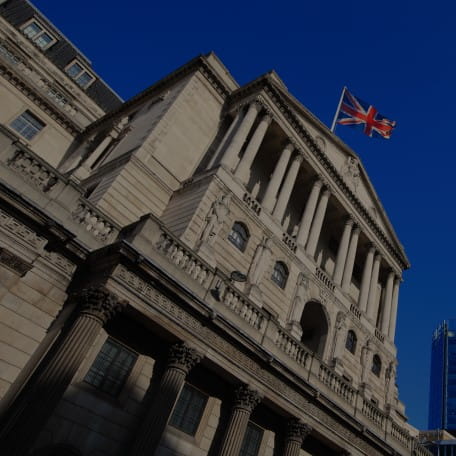The aggressive rate hiking by central banks to tackle inflation dominated investors’ attention in 2022. However, after a year of rate hikes, central banks are closer to the peak of their tightening cycle, and the focus is increasingly on corporate fundamentals, including their earnings and financial strength.
The US earnings season, seen as a barometer of corporate America – and the world’s largest economy – is now in full swing. Heading into it there was much uncertainty related to persistent core inflation, recession fears, geopolitical tensions and how far the Federal Reserve would hike rates.
Companies usually like to manage expectations ahead of their results, leading to the analysts who study stock markets often being pessimistic about upcoming earnings. Surprises to the upside can provide a fillip to share prices.
In the previous quarter – Q4 2022 – S&P 500 companies’ earnings were down -5.4% on revenues that were 5.9% higher compared with Q4 2021. Ahead of the current quarter, the consensus was for earnings to be around -10% down on revenues 1.7% higher than they were in Q1 2022.1
In practice, the start to the earnings season has been better than expected. The first 53 S&P 500 companies to report stated earnings were up 2.9% on 9.3% higher revenue, with 83% of them beating earnings per share (EPS) estimates and 72% beating revenue estimates.2
Financials open season with mixed results
The first industrial sector to report is normally financials. Expectations for the sector were reduced after the crisis sparked by US regional banks in March, most notably involving Silicon Valley Bank (SVB) and results have been mixed.
Several leading names beat market estimates: JPMorgan, for example, was up 52.4% on earnings and raised its outlook, while Bank of America was up 15.5%. Even the regional banks came in better than expected, with most posting a rise in net income on the year, although going forwards, rising costs and heavier regulations will make profits harder to come by for them. Citigroup, another big name, saw its earnings down -8.1% on the year however, while Goldman Sachs posted a US$470 million loss on the partial sale of a loan portfolio and Morgan Stanley reported profits down nearly 20%. The latter did, however, predict a pick-up in mergers and acquisitions, on which it provides advice.
Semiconductor companies warn recovery will take longer
The technology sector had gone into the reporting season following strong performance by growth stocks in Q1, as well as optimism about IT spending and the rise of artificial intelligence (AI). Technology companies have also been slashing staff numbers to prove their financial responsibility.
However, technology giant Tesla said that its gross profit margin fell to its lowest level in 13 quarters, thanks to reduced demand, while semiconductor companies such as global leader Taiwan Semiconductor Manufacturing Company (TSMC) have pushed back expectations for a market recovery. Semiconductor companies have told investors that the industry’s sharpest slowdown in over a decade is lasting long than expected amid weak demand and that bulging inventories are taking longer than expected to adjust.
The reporting season is due to continue for a few more weeks and some significant names have yet to announce results, but a key lesson from it so far is that an economic slowdown is occurring, and earnings cannot escape this. The stock market reaction has so far been muted to what have been mixed results. The promising start did show that decent fundamentals still seem to be in place, but also that the full impact of monetary tightening has yet to become clear.
1Source: Yahoo! Finance 12 April 2023
2Source: Yahoo! Finance 19 April 2023
KEY RISKS
Past performance is not a guide to future performance. The value of an investment and the income generated from it can fall as well as rise and is not guaranteed. You may get back less than you originally invested.
The issue of units/shares in Liontrust Funds may be subject to an initial charge, which will have an impact on the realisable value of the investment, particularly in the short term. Investments should always be considered as long term.
DISCLAIMER
This is a marketing communication. Before making an investment, you should read the relevant Prospectus and the Key Investor Information Document (KIID), which provide full product details including investment charges and risks. These documents can be obtained, free of charge, from www.liontrust.co.uk or direct from Liontrust. Always research your own investments. If you are not a professional investor please consult a regulated financial adviser regarding the suitability of such an investment for you and your personal circumstances.
This should not be construed as advice for investment in any product or security mentioned, an offer to buy or sell units/shares of Funds mentioned, or a solicitation to purchase securities in any company or investment product. Examples of stocks are provided for general information only to demonstrate our investment philosophy. The investment being promoted is for units in a fund, not directly in the underlying assets. It contains information and analysis that is believed to be accurate at the time of publication, but is subject to change without notice. Whilst care has been taken in compiling the content of this document, no representation or warranty, express or implied, is made by Liontrust as to its accuracy or completeness, including for external sources (which may have been used) which have not been verified. It should not be copied, forwarded, reproduced, divulged or otherwise distributed in any form whether by way of fax, email, oral or otherwise, in whole or in part without the express and prior written consent of Liontrust.










